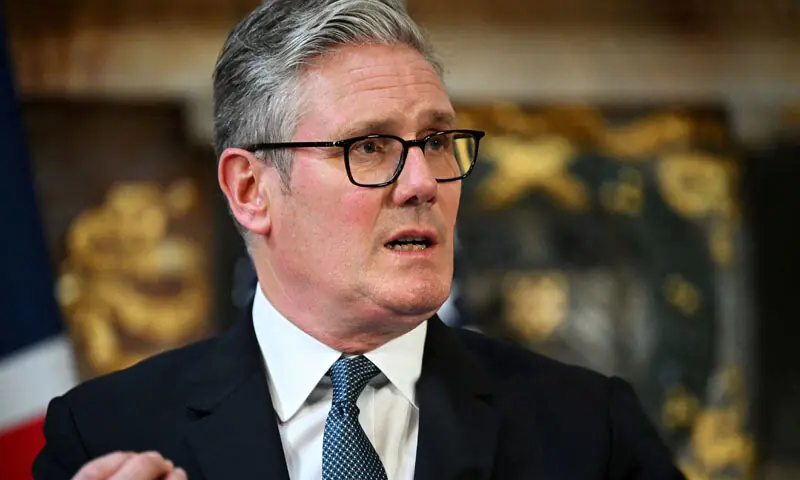The Prime Minister of the United Kingdom, Keir Starmer, announced plans for a new digital identification nationwide in an attempt to stop illegal migration, but the movement faces a strong opposition in the country that has long resisted such movements.
The new digital identification will be carried out on people’s phones and there will be no requirement for people to carry or be asked to produce it, the government said.
However, it will be “mandatory as a means to demonstrate your right to work,” said a statement.
“This will prevent those without the right to be here to find work, slowing their perspective of making money, one of the” key attraction “attraction for people who come illegally to the United Kingdom,” he added.
The Government said that the impulse will also be simpler to request services such as driving licenses, child care and well -being, while rationalization of access to tax records.
The announcement occurs when work, the party in the government, prepares to hold its annual conference, with a spreader under intense pressure, particularly about immigration.
“Digital identification is a huge opportunity for the United Kingdom … it will also offer countless benefits to common citizens,” said Starmer.
“We are doing the hard graft to deliver a more fair Britain for those who want to see the change, not the division,” he added.
The United Kingdom has traditionally resisted the idea of identity cards and does not have a central civil registry or public identification requirements.
The government led by the conservative in 2011 repealed the legislation of the Tony Blair government that created voluntary national identity cards and a resident registration database.
Political opposition
Kemi Badenoch, leader of opposition conservatives, wrote in X that his party “will oppose any impulse for … the Government to impose mandatory identification letters on citizens respectful of the law.
“We will not support any system that is mandatory for the British or excludes those of us that we choose not to use it from any of the rights of our citizenship,” he added.
The left -wing liberal democrats also said that “they cannot support compulsory digital identification where people are forced to deliver their private data only to follow their daily lives.”
And Nigel Farage, leader of the Last Right Reform Party, who predicts the surveys, will form the next government, said: “I do not see a single benefit for the government to have a digital identification that is not that it controls what we do, what we happen and where we are going.”
A petition that required that identification cards were not introduced had collected more than 650,000 signatures on early Friday, but recent surveys suggest majority support for the move between the public.
At the moment, the citizens of the United Kingdom generally use management licenses, passports and public services invoices as a means of identification, depending on the situation.
The Government says that “it will listen to a variety of opinions on how the service will be delivered”, as part of a public consultation that will be launched at the end of this year.
He also promised that the scheme will be available for those who cannot use a smartphone.
“Public consultation will be involved with groups that do not have as much experience with the digital world, as homeless and older people, learning from other countries that have done well,” said the government statement.








